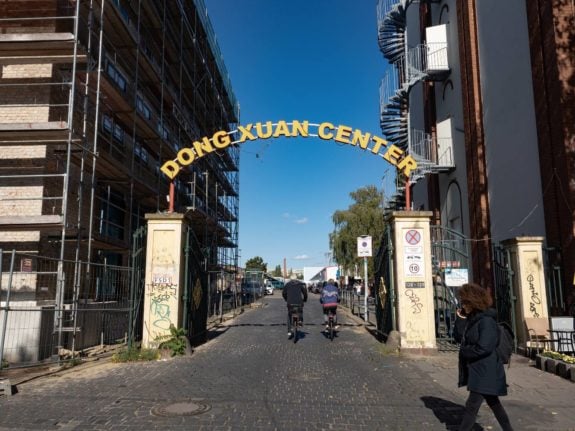“This is because Swedish police officers have been trained to spot these other forms of trafficking, and because of our continued work against sexual exploitation of young foreign women,” said the board’s inspector Kajsa Wahlberg to news agency TT.
According to the Swedish Trade Union Confederation (Landsorganisationen, LO), the number of trafficking victims who come to Sweden and end up in forced labour have grown noticeably.
“We definitely think we can see that,” said Thord Ingesson, LO’s expert on migration politics.
In December 2008, Sweden changed its laws on labour migration. According to LO, however, unreported figures are presumably high, and many who’ve received legal work permits since the law change have actually been working under forced conditions.
“I guarantee you we’re talking about thousands of cases,” said Ingesson.
He points out that forced labour is difficult to reveal and examine when both employer and employee are considered criminal. Ingesson calls for changed legislation, decriminalising the employee’s stay in Sweden.
“That would also create the possibility of receiving reimbursement for lost wages, and for this humiliation.”
Those who work in Sweden without a permit often end up in places such as Crossroads, an organization that supports people from other EU countries who live in poverty or homelessness in Stockholm.
Malena Bonnier of Stockholms Stadsmission, the Swedish charity which heads up Crossroads, points to interviews made in the last two years with 68 EU migrants, most from Poland and Romania.
Out of these, only eight percent had been homeless in their homeland. In Stockholm, 70 percent of them lacked a permanent address.
Often, employment problems are at the root of their homelessness.
“Anything from not having been paid, or had to wait for your pay cheque, or your employer disappearing,” explained Bonnier to TT.
Arto Moksunen manages Crossroads’ office in the Stockholm district of Stadshagen. According to him, several of those who seek help have had an exaggerated idea of the amount of work opportunities that exist in Sweden, an image which doesn’t correspond with reality.
“There just isn’t work, and even less housing. Many become depressed,” he said to TT.
Crossroads provide food and the possibility of a shower, but also has advisors for labour market issue and bulletin boards for posting available legal employment opportunities. They also arrange meetings with possible employers.
Moksunen points out that many of those who come to Crossroads came to Sweden in search of a job.
“It’s a very high figure. I’d say around 90 percent,” he said.


 Please whitelist us to continue reading.
Please whitelist us to continue reading.
Member comments